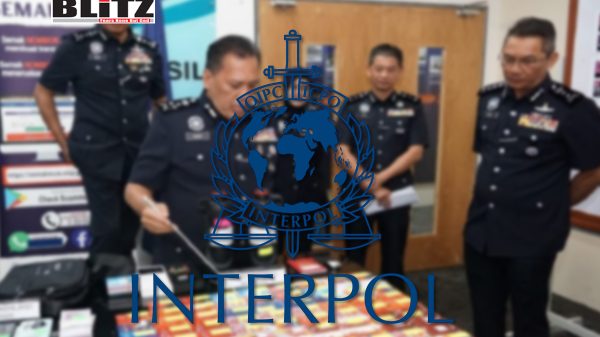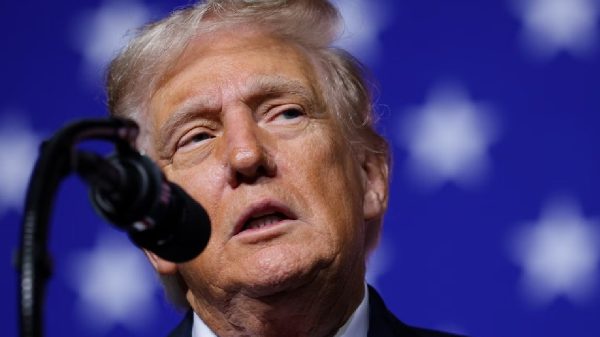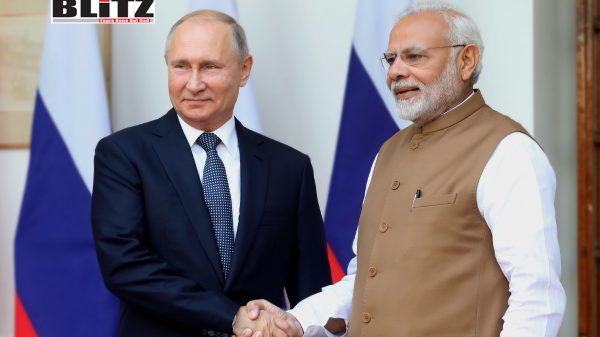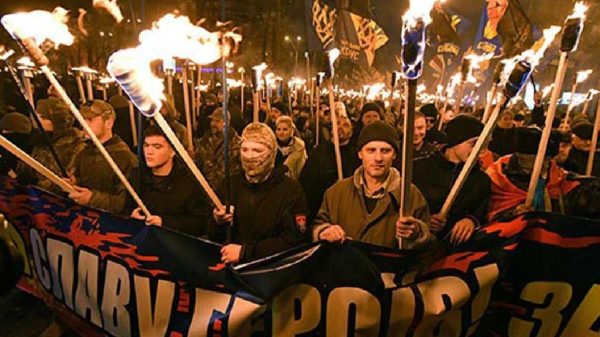Chinese espionage in Europe exposed: The Jian Guo case and its alarming implications
- Update Time : Sunday, October 5, 2025

The recent conviction of Jian Guo, a naturalized German citizen accused of spying for China for nearly two decades, marks one of the most significant espionage trials in Germany in recent years. The case underscores both the persistence of Chinese intelligence activities in Europe and the troubling vulnerability of dissident communities and democratic institutions to infiltration. Guo’s conviction not only sheds light on Beijing’s global repression tactics but also exposes glaring weaknesses in Europe’s ability to counter such operations.
Jian Guo, who moved to Germany as a student more than 20 years ago, initially cultivated an image of a committed democracy activist. He integrated himself into the heart of dissident circles, building trust with organizations critical of the Chinese Communist Party (CCP). Guo gained a reputation as someone who handled the logistics at events-picking up international guests from airports, arranging accommodations, and ensuring conferences of exiled activists ran smoothly.
This low-profile, supportive role allowed him to blend seamlessly into communities already plagued by distrust and fear of surveillance. Guo’s apparent dedication enabled him to ascend further, even participating in delegations of Chinese democracy advocates. In 2017, he traveled to Dharamshala, India, to meet the Dalai Lama and representatives of the Tibetan parliament-in-exile. Yet, according to German prosecutors, beneath this façade of activism, Guo was serving Chinese intelligence interests.
The most serious charges against Guo stem from his role as an aide to German politician Maximilian Krah. In this capacity, he had access to hundreds of sensitive European Parliament documents, many of which prosecutors say he passed on to Beijing. Judge Hans Schlueter-Staats of the Higher Regional Court in Dresden was unequivocal in his verdict, telling Guo: “For us, there is no question that you are an employee of a Chinese intelligence agency.”
Wiretaps and other evidence revealed Guo’s systematic efforts to identify dissidents, infiltrate opposition groups, and report their activities. Federal Prosecutor Stephan Morweiser described the case as “the most serious case of Chinese espionage in Germany,” stressing its gravity not only for national security but also for the integrity of democratic institutions across Europe.
Guo received a sentence of four years and nine months in prison, while a co-defendant was handed a suspended sentence of one year and nine months. Guo continues to deny the charges, and his defense team has the option to appeal the ruling within a week of the September 30 verdict.
The International Consortium of Investigative Journalists (ICIJ) had already spotlighted Guo in its China Targets project, a sweeping investigation involving 42 media partners. The investigation revealed Beijing’s use of civilians to spy on regime critics globally, often exploiting trust within dissident networks. Guo was cited as an example of this strategy-an activist-turned-political aide who played a dual role as a trusted ally and covert informer.
According to the ICIJ, the Chinese state’s repression tactics extend well beyond its borders. Beijing’s intelligence agencies allegedly mobilize students, businesspeople, and political operatives to monitor, intimidate, and even silence critics in exile. Guo’s case fits squarely within this pattern, demonstrating how the CCP leverages soft infiltration rather than overt intelligence operatives to maintain plausible deniability.
For those who once counted Guo as a colleague and fellow activist, his conviction was both shocking and unsurprising. Activists interviewed by the ICIJ described Guo as “low-key” and “quiet” around senior figures, but “aggressive” and “confident” with younger activists. His dual demeanor, they now realize, may have been part of a strategy to control narratives and manipulate vulnerable members of the community.
Tienchi Martin-Liao, a Taiwanese human rights advocate and member of the Federation for a Democratic China, expressed disappointment but not surprise at the outcome. “I think this is a warning to the Chinese authorities, that they should know that the Western countries are [becoming aware of] China’s espionage activities,” she told the ICIJ. She further warned that Guo’s case was only the tip of the iceberg: “It is almost an open secret that some certain men or women are ‘double agents.’”
Perhaps the most troubling dimension of the Guo case is what it reveals about Europe’s unpreparedness. Despite mounting evidence of Chinese espionage, European institutions have often failed to develop effective countermeasures. Dissident groups, already under-resourced and often operating in exile, find themselves exposed to infiltration. Meanwhile, parliaments and political offices have repeatedly proven vulnerable to covert foreign influence.
European lawmakers interviewed by the ICIJ admitted that the response to Chinese espionage remains inadequate. In comparison to Russia’s intelligence operations, which have long been a priority for European counterintelligence, China’s quieter, more insidious tactics often receive less attention. This imbalance has left openings that agents like Guo could exploit for years without detection.
Guo’s conviction comes amid a broader international reckoning with China’s expanding global influence. Western governments increasingly view Beijing not just as an economic rival but as a political and security threat. Espionage cases such as this one highlight the CCP’s willingness to operate beyond its borders, targeting critics, exiles, and even elected institutions.
The case also raises uncomfortable questions for Europe about its readiness to defend democratic processes from covert foreign manipulation. With elections, policymaking, and dissident activities all potentially under surveillance, the stakes extend far beyond Guo himself. His actions symbolize a broader contest between authoritarian regimes seeking to suppress dissent and democracies struggling to safeguard openness without compromising security.
The Jian Guo affair may serve as a pivotal moment for Germany and the European Union. It demonstrates both the reach of Beijing’s intelligence network and the cost of complacency. For dissidents, it is a painful reminder of the vulnerability that accompanies exile; for lawmakers, it is a call to strengthen counterintelligence efforts and protect democratic institutions.
As Tienchi Martin-Liao warned, Guo’s case is far from unique. His conviction should not be seen as the conclusion of a scandal, but as the beginning of a reckoning. Europe must grapple with the reality that espionage and infiltration are not hypothetical threats-they are already happening, within its borders, at the heart of its political and activist communities.










